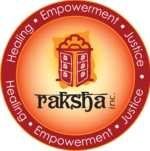Domestic Violence & Stalking
January is National Stalking Awareness Month (NSAM), a time to reflect on how stalking and domestic violence intersect. Stalking is a prevalent victimization that often co-occurs with — and increases the risks of — domestic violence. Millions of individuals of all genders are stalked every year in the United States and nearly half of stalkers are intimate partners (current or former). It is estimated that 1 in 3 women and 1 in 6 men will experience stalking in their lifetime. Many abusers stalk their partners both during and after the relationship has ended as an extension of coercive control. Stalking is a terrifying and psychologically harmful victimization in its own right.
Stalking is a pattern of behavior directed at a specific person that causes fear or emotional distress. Two or more incidents make a pattern. However, definitions vary from state-to-state. It’s important to be familiar with GA’s laws about stalking. Stalking is typically directed at a specific person – the victim. However, stalkers often contact the victim’s family, friends and/or coworkers as part of their pattern of behavior. Stalkers use a variety of tactics, including (but not limited to): unwanted contact including phone calls, texts, and contact via social media, unwanted gifts, showing up/approaching an individual or their family/friends, monitoring, surveillance, property damage, and threats.
On average, stalkers who are intimate partners are more threatening and dangerous than other stalkers, and intimate partner abusers who stalk are more threatening and dangerous than abusers who don’t stalk. Stalking increases the risk of intimate partner homicide by three times. The prevalence of anxiety, insomnia, social dysfunction, and severe depression is much higher among stalking victims than in the general population. Victim services such as Raksha can help victims take stalking into account as they devise a safety plan, navigate legal systems, assert their rights, and obtain the support they need and to which they are entitled.
As stated previously, stalking is a traumatic crime that often co-occurs with other forms of victimization and that can affect specific populations in unique ways. Offenders may use stalking as a tactic of abuse or as part of planning to commit another crime, as well as use specific types of violence and victimizations to target a victim. Within the South Asian population, immigrants can be especially vulnerable.
source: stalkingawareness.org
What to do if you are being stalked
- Trust your instincts. Victims of stalking often feel pressured by friends or family to downplay the stalker’s behavior, but stalking poses a real threat of harm. Your safety is paramount.
- Call the police if you feel you are in any immediate danger. Explain why the stalker’s actions are causing you fear.
- Keep a record or log of each contact with the stalker. You can use this log as an example. Be sure to also document any police reports.
- Save evidence when possible. Stalkers often use technology to contact their victims. Save all emails, text messages, photos, and postings on social networking sites as evidence of the stalking behavior. You may also want to consider how to use your technology and your devices in a safer manner. For more information, please visit the National Network to End Domestic Violence Safety Net Project’s Tech Safety Site.
- Get connected with Raksha who can assist you in exploring your options as well as discuss safety planning.
source: stalkingawareness.org
Resources for Help
| Helplines | Phone Number |
| Victim Connect | 855-4-Victim/855-484-2846 Confidential referrals for victims of crime, including stalking. |
| Cyber Civil Rights Initiative Helpline | 844-878-CCRI (2274) For victims of nonconsensual distribution of intimate images (also known as “revenge porn”), recorded sexual assault, or sextortion. |
| National Sexual Assault Hotline | 800.656.HOPE (4673) |
| The National Domestic Violence Hotline | 1-800-799-SAFE (7233) Contacts to The Hotline can expect highly-trained, expert advocates to offer free, confidential, and compassionate support, crisis intervention information, education, and referral services in over 200 languages. |
| National Deaf Domestic Violence Hotline | 855-812-1001 (video phone) The Deaf Hotline has advocates available 24/7 for crisis intervention, education, information and referrals for Deaf, DeafBlind, DeafDisabled callers. |
| The Network/La Red LGBTQ Hotline | 800-832-1901 The Network/La Red’s 24-hour hotline provides confidential emotional support, information, referrals, safety planning, and crisis intervention for lesbian, gay, bisexual, queer and/or transgender (LGBQ/T) folks. |
| Love is Respect | 1-866-331-9474 Confidential support for teens, young adults, and their loved ones seeking help, resources, or information related to healthy relationships and dating abuse. |
| WomensLaw.org | E-mail hotline with plain language legal information for victims of abuse. |
| NIWAP Directory of Programs Serving Immigrant Victims | A directory of service providers with experience working with immigrant victims of stalking, domestic violence, sexual assault, U-visa crimes, and human trafficking, by state. |
Day of Action January 18th
January 18th is the National Day of Action for Stalking Awareness. This date commemorates the murder of Peggy Klinke at the hands of her stalker in 2003. Peggy’s sister Debbie Riddle is an anti-stalking activist who co-founded NSAM in her honor. Debbie said, “Peggy had a sparkling personality and would light up a room. As the stalking continued and continued, we saw that shine fade.” For Peggy and for all victims and survivors of stalking, help us spark a conversation on stalking on January 18th – wear your flashiest, most sparkly clothes and accessories and post a picture using the hashtags #SparkleAgainstStalking and #NSAMDayofAction.

